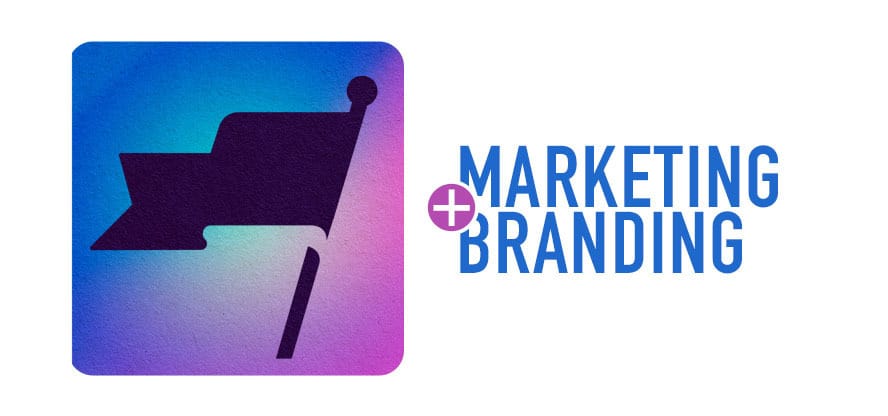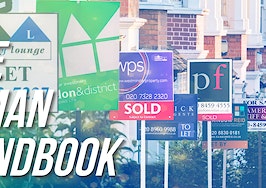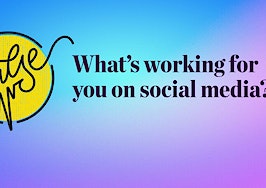 September is Marketing and Branding Month at Inman. That means we’re talking to the chief marketing officers at major brokerages about how the pandemic is changing their jobs and what it means for agents. We’re publishing a suite of tactical Inman Handbooks for marketing on digital portals. And we’re looking at what pages of the traditional marketing playbook still work. Join us all month long.
September is Marketing and Branding Month at Inman. That means we’re talking to the chief marketing officers at major brokerages about how the pandemic is changing their jobs and what it means for agents. We’re publishing a suite of tactical Inman Handbooks for marketing on digital portals. And we’re looking at what pages of the traditional marketing playbook still work. Join us all month long.
#Hashtags #are #everywhere, #but #they’re #often #misused #and #overused — meaning agents and real estate professionals are missing out on the opportunity to grow their audience, increase engagement and drive traffic to listings or other offerings.
Liquidfish Director of Digital Marketing Zena Cherian and Colorado SEO Pros Founder and CEO Chris Rodgers sat down with Inman to explain the ins-and-outs of effectively using hashtags on Facebook, Instagram and Twitter. Here’s what they had to say:
Inman: This may seem like a no-brainer, but I’m sure there are still people out there who don’t truly understand the purpose of a hashtag. Could you give some background on how they work?

Zena Cherian
Cherian: I actually just saw the original tweet that introduced hashtags, and the guy who came up with them, it actually is a fairly genius idea. So the purpose of hashtags is to aggregate content so end users have an easier time finding [similar] content.
So say that we are both really into nail design. If you’re a manicurist and you hashtag nail design, nail artists, or things like that, it makes sense. I can click into that hashtag and finding your content there. [However], if I was just someone who liked nail design and art in general, and I created a graphic about nail design and hashtagged nail design, that would be inappropriate.
[Hashtags] are like folders, and what can make [hashtags] seem very spammy is when things are misclassified.
What’s your system for deciding which hashtags to use?
Rodgers: You need to think about the hashtags you’re using and see if they make sense. Go and look at the type of posts and the conversations that are taking place under the hashtag you want to use. Make sure what you plan to post is relevant and that you’re not picking [a hashtag] that’s kind of ambiguous and won’t resonate with the audience.
Cherian: The best thing to do is to create hashtags for buckets of content rather than just hashtags for every [individual] picture. So if I’m managing an account for a real estate agent or company, we will say, ‘Okay, these hashtags are for leases and these are for rentals, or for for-sale listings.’ Then we’ll say, ‘This is for properties in Edmond or this is for properties in Norman.’
We’ll put that all together, and we have a spreadsheet that tells us about viable hashtags and their search volume. And then we’ll mix those up until we find the right formula for that client.
After identifying which hashtags are relevant, which could be dozens, how do you decide which ones will be most effective for attracting an audience? Should they aim to be a big fish in a small pond with lesser-used hashtags or a small fish in a bigger pond with well-known hashtags?
Cherian: I think it’s a really great way to word that question. In my experience, it really is about having a mixture of levels. like hashtagging Oklahoma City, but also hashtagging a very specific, branded hashtag.
What people with smaller profiles always tend to do is choose hashtags with 1 million posts, like #love or things like that. People do that because they think more eyes will be on it, [and] I actually think it’s contrary to what actually happens. There are a million posts and the odds of any eyes falling on yours are really low. Your post is probably going to be up towards the top of that hashtag feed for a shorter amount of time.
I really feel like a healthy range is anywhere from 1,000 to 5,000 in [a hashtag’s] search volume, because that’s going to give you the more viable leads. Also, the smaller the amount of search volume, the higher intent of the user. If I’m looking at #OKCrealestate, I can find high-intent users, rather than just using #OKC or #realestate. #OKC could include posts for OKC food, OKC nightlife, and all these different things and I won’t find high-intent users there.

Chris Rodgers
Rodgers: I wouldn’t ignore ones that have really big audiences, but they’re having lots of posts, right? Yeah, it’s unlikely that one post is really going to, you know, go viral. But if you’re using some of those hashtags more consistently and posting more frequently under those with those larger hashtags, that’s a way that you can cut through the noise.
From there, you can use a number of different free hashtag tools out there. Ritetag is one that we’ve used, and you can go in and see what the audience is, what the reach is, and the number of posts that are taking place to give you an idea for what engagement on those hashtags look like.
How many hashtags should real estate agents use on a single post? I notice there’s a tendency to cram as many hashtags as possible.
Cherian: We represent a few real estate companies and we actually do a whole hashtag strategy. When we take over an account, we’ll have one week where we’ll use five hashtags, and one week where we’ll use seven. The most amount of hashtags you’re allowed on Instagram is 30.
What I see real estate agents do and people in that industry, in particular, is using all 30. They think that is the most viable way to use that opportunity and it’s actually not.
At one point the algorithm was set to do well with 30-plus hashtags or however many hashtags the limit. Now, it’s actually the complete opposite — it’s about finding the most relevant ones. If you focus on just getting as many eyes on your post as possible with multiple hashtags, that’s what will make it feel really spammy.
Rodgers: Once again you need to think about relevancy and what is most relevant for your post. Look at the audience under those hashtags and let that be your first driver. If you feel like you’re putting in extra hashtags, that maybe aren’t quite as relevant just to fill [space] and reach more people, then you’re probably going too far.
We’ll typically do between maybe three and five [hashtags], and maybe you could do as many as seven. However, that might be a bit overloading it.
When it comes to hashtags on various platforms, I notice they’re more popular on Twitter and Instagram than Facebook? Which platforms are most effective for driving engagement through hashtags?
Rodgers: Twitter and Instagram would be the two primary ones. With Instagram, I know [hashtags have] a really big impact because it’s a huge way that Instagram connects people. With Twitter, the same thing is true; however, hashtagged tweets are also indexed on Google. So with Twitter, there are some SEO implications unlike Instagram.
Cherian: The entire digital marketing community has a joke about Facebook. It’s kind of a pay-to-play platform. For you to get eyes on your content, it’s going to be putting money behind boosting, which people think that has to be a lot of money. This is not hashtag related, but you can honestly boost a post for $5 and get more views on Facebook, than by using however many hashtags. Facebook’s boosting feature is going to be your golden ticket.
As far as hashtags on Facebook, they are not as effective as Instagram. They’re not used as heavily as Instagram. Best practice says not to use more than just a couple of hashtags, and by a couple, I literally mean anywhere from one to three. On Facebook, anything with more than that can look extremely spammy, and the moment your content is regarded as spam, there’s no coming back from that.
Lastly, how can real estate professionals go about testing which hashtags work and optimizing their strategy as their brand and business grow?
Rodgers: As I said before, I would use a hashtag tool to make sure that the hashtags I’m using are selecting are based on data. From there, I would be looking at engagement. Are you getting the likes? Are you getting shares? What seems to be working? What’s not working?
You’re going to need to do a good number of tweets or a good number of posts, in order to gauge if a hashtag is working. Even if a hashtag isn’t necessarily producing a ton of engagement on my post, I might keep using it if I thought it was really relevant.
Cherian: It’s about mixing up [hashtags] until [you] find the right formula. It sometimes takes, you know, three or four months of really strategizing and messing with it to see what works.













